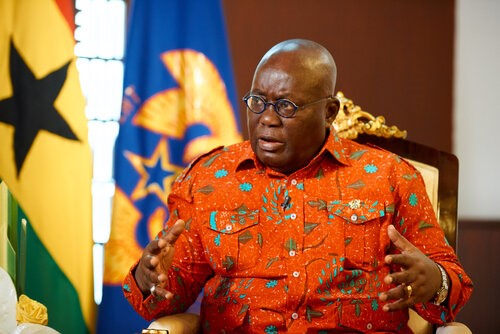The quest by Ghana to transform its economy through Agriculture continues to gain momentum under the leadership of President Nana Addo Dankwa Akufo-Addo.
Following the successful implementation of the food crop module of its flagship Planting for Food and Jobs (PFJ) initiative, government is set to achieve yet another milestone in the agriculture set with the introduction of an authority to oversee the production, marketing, processing and exports of six major tree crops in the country.
The authority, which is the legal product of the Planting for Export and Rural Development (PERD) module of the PFJ, is expected to lead the agenda of the diversification of Ghana’s agricultural export commodity industry from the over reliance on cocoa.
The selected crops are cashew, oil palm, shea, coconut, mango and rubber. The TCDA will therefore be responsible for coordinating the activities of all the major stakeholders involved in the production, marketing and export of these six major crops.
With its headquarters in Kumasi, the Ashanti Regional capital, the authority will have the semblance of COCOBOD, and will put in place policies and programmes to ensure research, production, pricing and marketing of the commodities.
Currently, cocoa is by far the major export commodity of the country, earning Ghana an annual income of some US$2.5 billion.
But with the potentials of the selected tree crops, Ghana could soon exponentially increase its agricultural export earnings. It is anticipated that each of these tree crops could individually fetch the country annually as much as cocoa currently does – viz an altogether total of some US$16 billion per annum from 2028 onwards.
This strategic intervention is expected to be inaugurated at the Golden Bean Hotel in Kumasi today, Tuesday, September 29, 2020 by the President of the Republic with His Majesty Asantehene Otumfuo Osei Tutu II in attendance as the royal guest of honour.
Background
PERD and the TCDA: the linkage and what you must know
- Pursuant to the campaign tour in 2016 the NPP made a commitment to the people of Ghana that if given the chance it would ensure that a regulatory institution will be established to accelerate the development of the tree crop sub sector just as has been the case with COCOBOD since 1947.
- Following the assumption of power, the NPP government recognised the agriculture sector as a tool for accelerated rural development to achieve inclusive growth development.
- It has therefore initiated interventions geared towards developing specific sectors of our agriculture sector namely Planting for Food and Jobs, Rearing for Food and Jobs, 1 Village 1 Dam, Agricultural Mechanisation Centres, Greenhouse Village Projects and the Planting for Export and Rural Development.
- The Planting for Export and Rural Development (PERD) Programme, launched by the President in 2019 at Dunkwa on Offin, focuses on developing the tree crop subsector and it, is a market-oriented rural base value chain intervention that seeks to increase and widen Ghana’s export portfolio and accelerate rural development.
The PERD Programme is mainly driven by:
- Efficient on-farm support which involves the delivery of modernised extension services, formalised farmer groups, digitally mapped farms and production and free distribution of elite planting materials of cashew, coconut, oil palm, mango, coffee, shea and rubber
- Reliable Business support that sought to facilitate business solutions for the businesses along the seven (7) value chains under the programme
- Regulatory support – Recognising the need to safeguard private sector investments into the tree crop sector and make it more competitive, regulatory institutions are established and where necessary existing regulations are reviewed. Thus, the Tree Crop Development Authority (TCDA).
- The tree crop sector is strategically positioned to drive Ghana’s industrialisation agenda through the 1D1F policy towards the Ghana Beyond Aid Vision. The Ghanaian tree crop sector is confronted with peculiar challenges – unregulated sector, poor and unreliable pricing mechanism, weak extension regimes, inadequate credit support, weak public sector commitment and inadequate research.
- The TCDA ACT (ACT 1010) was passed by Parliament in December 2019 to undertake two (2) critical activities – development and regulation of the tree crop sector.
Management structure
The TCDA is composed of a 29-member board to which 24 members are nominated by the private sector. The executive management is headed by the Chief Executive Officer (CEO) who is supported by a Deputy CEO in charge of Finance and Administration and a Deputy CEO in charge of Operations
Governance Structure
Unlike COCOBOD, composition of the board of the authority is mainly made up of the private sector. The national value chain association of each of the selected crops nominate four members each to the board of the authority.
The selection of members is done through a self-designed process that ensured transparency and commitment of all value chain actors. The nominations reflect representation along the value chain of each of the selected crops. Nominations to the board of the authority is exclusively apolitical. The means of financing the work of the authority is also different. There is a sustainable funding mechanism that ensures the authority to carry its mandate.










